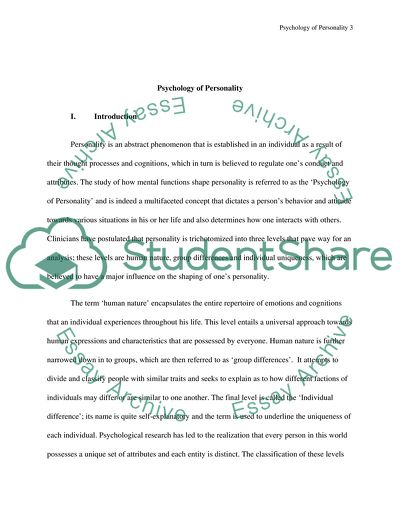Cite this document
(“Personality NEO-FFM Research Paper Example | Topics and Well Written Essays - 3250 words”, n.d.)
Retrieved from https://studentshare.org/psychology/1617068-personality-neo-ffm
Retrieved from https://studentshare.org/psychology/1617068-personality-neo-ffm
(Personality NEO-FFM Research Paper Example | Topics and Well Written Essays - 3250 Words)
https://studentshare.org/psychology/1617068-personality-neo-ffm.
https://studentshare.org/psychology/1617068-personality-neo-ffm.
“Personality NEO-FFM Research Paper Example | Topics and Well Written Essays - 3250 Words”, n.d. https://studentshare.org/psychology/1617068-personality-neo-ffm.


